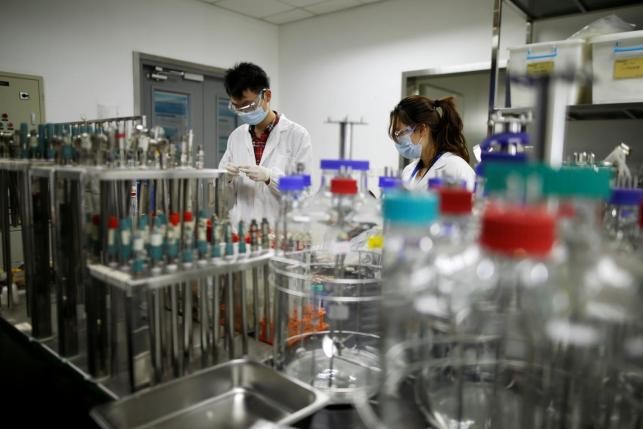A team of international scientists has found that a type of drug already sold on the market can prevent breast cancer and other forms of the disease, the South China Morning Post reported.
Researchers have reportedly tried the drugs on mice and was found to have prevented the growth of breast tumors that result from the mutation of the BRCA1 gene.
According to the study, the drug can block the mechanism that controls the growth of cell and prevent the chance to get any type of breast cancer caused by genetic mutations.
The drug called Denosumab, which is sold as treatment for bone diseases, can block the pathway called rankl/rank.
The new research was led by Professor Josef Penninger, a scientist at the Institute of Molecular Biotechnology at the Austrian Academy of Sciences in Vienna.
The findings of the research, which came after 15 years of work, were published on Tuesday, May 31, in the scientific journal Cell Research.
Penninger said that the use of Denosumab, a rankl/rank pathway-blocking drug, in preventing breast cancer will bring a "revolution" in cancer therapy.
"Our paper introduces the future of breast cancer prevention, and prevention is the big prize in cancer research," the professor told the South China Morning Post. "It could be used for all women and this antibody needs to be injected only two times a year. The clinicians tell me [the drug] is entirely safe."
Rankl, short for "receptor activator of nuclear factor kappa B," is a molecule on a cell's membrane which controls the growth of cells. Rankl passes chemical signals to the molecule to regulate its activities.
For some time, the formation of the the rankl/rank pathway has been thought as the cause of some bone diseases.
Meanwhile, Denosumab, which had been approved safe by the U.S. Food and Drug Administration, is already on the market.
The Penninger team found that blocking the rankl/rank pathway helps prevent the development of BRCA1-driven breast tumors in mice and human cells.
Using Denosumab during the test, breast tumors in lab animals were also wiped out, according to the researchers.
Penninger said they will start the clinical trial in women carrying the BRCA1 mutations "very soon."
"We proposed [five years ago] that a rankl blockade could be used to prevent breast cancer, but it was ignored because I was told one needs data in a high risk cancer population," said Penninger. "Therefore, we started to study BRCA1 mutants because this confers high risk."
Meanwhile, Professor Zeng Yi, who studies breast stem cells at the Chinese Academy of Sciences' Shanghai Institutes for Biological Sciences, has cautioned women against using rankl blocking drugs without extensive clinical trials and until it is proven safe.
She said that blocking the rankl/rank pathway in cells may have unforeseen results for women.
"The FDA approval of a rankl/rank blocking drug does not mean it can be bought and used by every woman. These kind of antibodies are usually in very short supply and extremely expensive," Zeng said.
"The research findings may contain some hope, but it should be treated cautiously by patients and their families," she said.



























